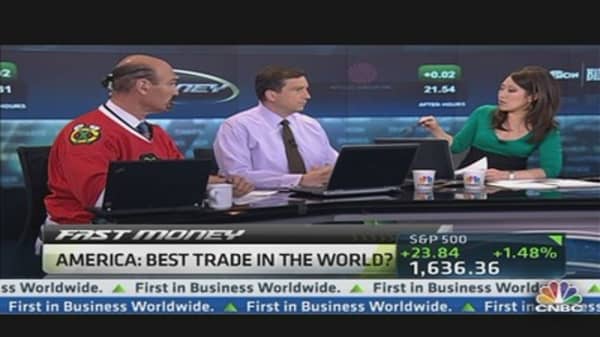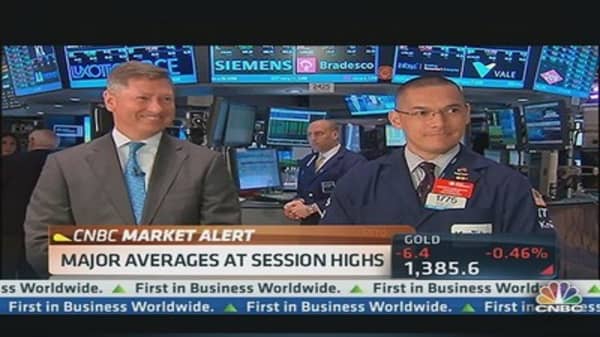"We had some good data and the market seems to have stopped looking at the turmoil in Japan—at least for today," said Brian Gendreau, market strategist at Cetera Financial. "But everyone's focused on the Fed now…Volatility will likely continue—the Vix is a bit higher than usual, which implies a little bit of apprehension and people getting concerned."
On the economic front, weekly jobless claims declined 12,000 to a seasonally adjusted 334,000 last week, according to the Labor Department, falling near the lowest level in nearly five years. And retail sales climbed 0.6 percent in May, according to the Commerce Department, topping expectations for a gain of 0.4 percent. Retail sales account for about 30 percent of consumer spending.
Meanwhile, business inventories rose 0.3 percent in April, according to the Commerce Department, in line with expectations. Inventories are a key component of GDP changes. And import and export prices declined unexpectedly in May.
Earlier, Japan's benchmark Nikkei plunged over 6 percent, pushing the benchmark firmly back in bear market territory for the second time in less than a week. The index has tumbled more than 20 percent from last month's 5 1/2-year high of 15,942.
(Read More: What Japan Can Teach the Fed About QE Addiction)
Interestingly, the dollar/yen dropped below the key 95-handle to a new 10-week low, but stocks still held gains, signaling a trend reversal as equities have moved very closely with the yen for the past several weeks.
Elsewhere in Asia, markets experienced a bout of heavy selling with the Shanghai Composite down nearly 3 percent, Seoul shares falling to a new eight-week low and Australia's S&P ASX 200 hitting a fresh five-and-a-half-month low. Emerging markets also extended losses as capital flows continue to exit local equities. Thailand's SET index and Philippine's benchmark index slumped over 5 percent each, extending broad losses.
(Read More: Is It Game Over for Japanese Equities?)
"We are seeing the first signs of a lack of confidence in the ability of central banks to control the interest rates, and to stimulate inflation and real GDP growth rates," said Viktor Shvets, head of strategy research, Asia, at Macquarie.





